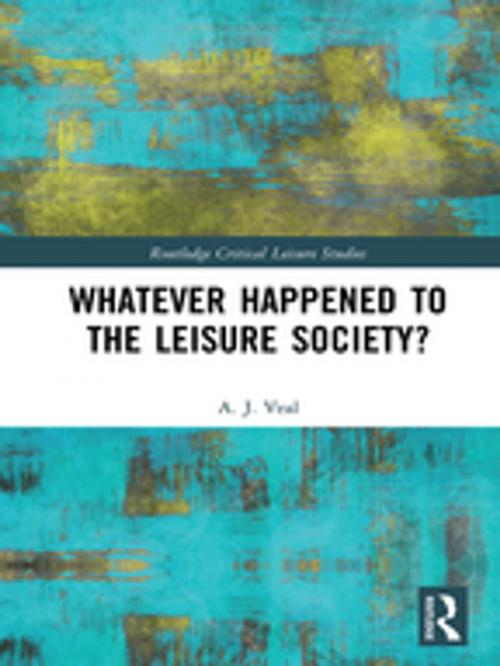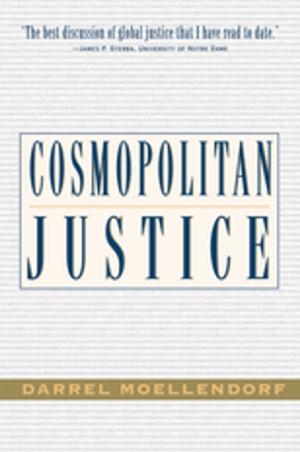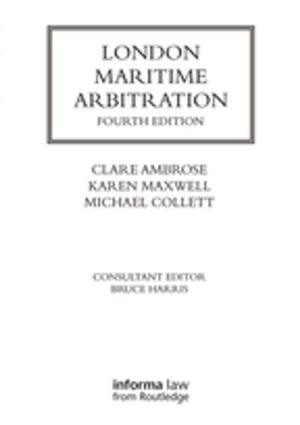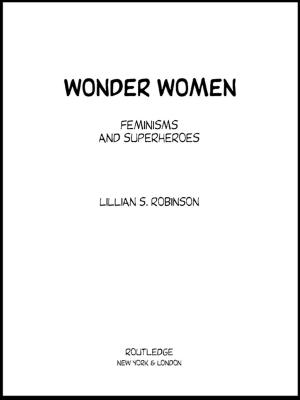Whatever Happened to the Leisure Society?
Nonfiction, Social & Cultural Studies, Social Science, Sociology| Author: | A. J. Veal | ISBN: | 9781351972024 |
| Publisher: | Taylor and Francis | Publication: | October 10, 2018 |
| Imprint: | Routledge | Language: | English |
| Author: | A. J. Veal |
| ISBN: | 9781351972024 |
| Publisher: | Taylor and Francis |
| Publication: | October 10, 2018 |
| Imprint: | Routledge |
| Language: | English |
The idea of a ‘leisure society’ was in its heyday in the 1960s and 1970s, when it was predicted that the pattern of falling working hours which had been experienced in Western societies in the first half of the twentieth century would continue indefinitely. The leisure society has clearly not been realised. On the contrary: contemporary industrial societies seem to be characterised by a shortage of time, experienced as ‘time squeeze’ and stress. The leisure society idea can be seen as the modern version of the age-old dream of a ‘life of ease and plenty’.
This analytically and empirically rich book traces the idea in history, through biblical, classical Greek, medieval and nineteenth century utopian writings and into twentieth century concerns with dystopia and the impact of rapid technological change. The ‘leisure society’ concept turns out to have been an elusive and short-lived phenomenon. For a variety of reasons, the trend towards shorter working hours ran out of steam in the last quarter of the twentieth century. However, while leisure scholars have deserted the topic, a diverse range of activists, including environmentalists, economists and feminists, continue to make the case for reducing working hours. Whatever Happened to the Leisure Society? concludes that the on-going ‘struggle for time’ should be supported, for the sake of human health and well-being and for the sake of the planet.
This is a valuable resource for students and academics in the fields of leisure studies, cultural studies, history, economics, sociology and political science.
The idea of a ‘leisure society’ was in its heyday in the 1960s and 1970s, when it was predicted that the pattern of falling working hours which had been experienced in Western societies in the first half of the twentieth century would continue indefinitely. The leisure society has clearly not been realised. On the contrary: contemporary industrial societies seem to be characterised by a shortage of time, experienced as ‘time squeeze’ and stress. The leisure society idea can be seen as the modern version of the age-old dream of a ‘life of ease and plenty’.
This analytically and empirically rich book traces the idea in history, through biblical, classical Greek, medieval and nineteenth century utopian writings and into twentieth century concerns with dystopia and the impact of rapid technological change. The ‘leisure society’ concept turns out to have been an elusive and short-lived phenomenon. For a variety of reasons, the trend towards shorter working hours ran out of steam in the last quarter of the twentieth century. However, while leisure scholars have deserted the topic, a diverse range of activists, including environmentalists, economists and feminists, continue to make the case for reducing working hours. Whatever Happened to the Leisure Society? concludes that the on-going ‘struggle for time’ should be supported, for the sake of human health and well-being and for the sake of the planet.
This is a valuable resource for students and academics in the fields of leisure studies, cultural studies, history, economics, sociology and political science.















